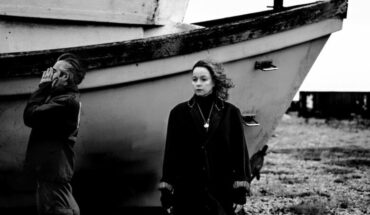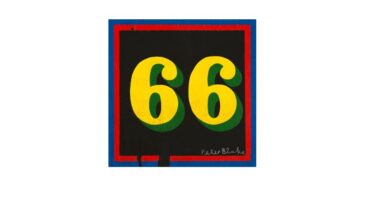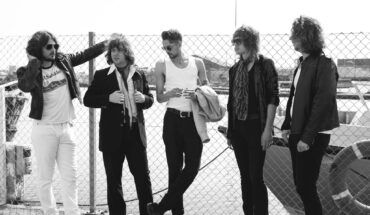When Robert Howard and I first met on a warm Soho night in what feels now like a lifetime ago, we spoke of how he began in music. “I was shy when I was young,” he told me then, “and playing music was a way of expressing myself”.
Today, however, the veteran songwriter is ensconced in his Andalusian eyrie, reflecting on the need to persevere in our brave new world. After 40 years in the music industry as frontman of The Blow Monkeys, few have experienced the vagaries of the business, or indeed life as completely as he.
As a songwriter and musician of evident durability, he says the dystopian grip of the 2020 spring failed to hinder his creative momentum. “I spend my life listening to music and reading anyway. I ruminate, too much, perhaps. So, to be honest, the whole lockdown situation suited me, to begin with. I live in southern Spain, up a hill, and I’m a bit of a hermit, so I thought, I know what I’ll do, I’ll make another album [Journey To You] because that’s just what the world needs.”
At a time when turgid public pronouncements are de rigueur, Robert’s self-deprecatory humour comes as a welcome salve. “The initial lockdown months, when nature re-entered city centres and the commute stopped, were a real portal into another way of life, before the powers that be again tried to corral us back into the capitalist wet dream. But then things began to drag. It hit us hard because we couldn’t work and I couldn’t see my kids for a while. At that point, it became a battle.”
But is he concerned that anything that he now might write or record will be for a post-lockdown world populated by a changed people with altered tastes? “It’s too early to tell. I think there has been a shift and, yes, I don’t think things will ever be the same. Music is about communication and when you’re in a gig situation, the magic moment – or what the Spanish call the duende – happens when the barrier between the performer and the audience disappears. And it’s that communal moment that disappeared recently, be it at the football or church or the gig. It was taken away from us. So I became aware of how truly important that moment is. I really value the communal experience of playing music to people.”
He says Choice, a song he wrote 35 years ago and that he still plays live, is something he feels he could have written yesterday because of its contemporary relevance. “The same divisions are present in English society, but I remain hopeful.” So there’s still no choice at all? He laughs blackly. “I mean, you’ve got Priti Patel and Nadine Dorries. I mean, we’re at an all-time low. The political system in the UK is not fit for purpose, it wasn’t designed to deal with a nation’s spiritual growth, so people are beginning to drift away from it and start to live their own lives as pockets of resistance.” He says that despite his fascination with politics, he is also horrified by recent events. “I’m not wanting to sound like some cod-psychologist, but I think we are definitely living in an age of psychopaths, and I use that term clinically. I never thought I’d see this in my lifetime. They’re all of a similar age and are all privileged white men in positions of power and playing the superhero role, the saviour role.
“But when I’ve spoken to my kids, who are in their thirties, I’ve perceived a shift in how they perceive the world at large. There’s a human need for spiritual change. It’s a generational thing. They know instinctively that something is deeply wrong with the way we’re heading. I see hope in that because everything boils down to the way we perceive and think about the world. And it’s been through the manipulation of perception, especially in this era of the phone and the internet, that the brainwashing has come about.”
It’s a salient point; via the use of the tools of social media, a subversion has taken place. “I know it’s old news, but the power of Facebook is incredible. We know how they manipulate our so-called democracy, so it’s been a very divisive time.
“You can have two views of life,” he says. “The altruistic or the selfish. The latter is the Tory view, that we’re all intrinsically selfish. But the past two years has proved that that isn’t the case. And yet it’s never been as bad as it is right now. These are Eton boys laughing at you. There’s something very wrong with the system. There’s a sleeping knee-jerk Toryism in the Home Counties. I know because I used to live there. You were lied to about everything, but they’re still in office. And even now, if the leader changes, they’ll still probably win again.”
Clearly, in Robert there still burns brightly the flame of social conscience, but what does he make of the Establishment’s desire to enfeeble by sowing social division? “The Establishment feeds from the divide, it’s what it needs to keep its place. For instance, to be vaccinated or not to be is the latest division, and it’s totally wrong. It didn’t make sense. I know people now who, because of their so-called status, can’t tour. Being prevented from travelling was a big mistake.
“So,” he says, “write books, make music. That’s all you can do. They’re acts of resistance. I want to come from a place where I don’t edit myself, where it’s coming from the heart, and I’ve got the tools now because I’ve been doing it for 40 years. Recently I felt good again about being a musician. It’s a good thing to do.”
Robert was born in Scotland but has lived in places as disparate as King’s Lynn, Australia, London and Oxfordshire. He says he moved to Spain because he needed to escape the Home Counties. “Where I live in Spain, this year’s price of oranges is what’s talked about in the village bars and cafés, or else it’s the story of the man next door who presses his olives. It’s the here and now. Here life is prosaic, values are different. I once had the delusional idea that I’d come here and become an olive farmer,” he laughs. “I’d read all those books like A Year In Provence but the reality of living down here has proved to be far more interesting. I’ve found a freedom because no one knows who the hell I am. At village meals, I’m just Roberto who plays the guitar while they wash up and get pissed. Here I have a functional role, but when I jump on a plane and play a gig, I love that too. But the function of music in a small community has been and remains a head clearer. I could never do this in England because it’s always been a case of ‘Who do you think you are?’”
He’s an admirer of musical cities like Glasgow and Newcastle, and in particular Liverpool where last year The Blow Monkeys played The Cavern to a capacity crowd. “They were gagging for some live music by the time we played it,” he adds by way of an explanation for the band’s enduring popularity. “Right now, it’s a case of me saying yes to gigs no matter where they are because that gig may be my last. You just don’t know what lies ahead. Sixty per cent of the set these days comes from the past two albums, which I think is not bad for a band that’s been going for 40 years. But yeah, of course we’ll still play songs like Digging Your Scene. After all these years, the artifice drops off and you flow more, you get braver. When music is happening at its best, a musician is just a conductor.
“And time is finite. But knowing this feeds into your creativity. What you have to remember is that all of us will be forgotten. And nothing really matters.” Again comes the laughter. “I know that must sound nihilistic, but the other day I met someone who had never heard of Frank Sinatra. So how long will it be before we’ve forgotten who Elvis was? Covid and the lockdown made us realise in stark terms that we need a spiritual aspect to our lives. Capitalism long ago became the new religion but it’s a busted flush. People think that with money and fame, you can buy yourself a little piece of forever.”
With this country still reeling from the recent national trauma, Robert is put in mind of how, at the age of 15, he lost his father, a shock that sent him tailspinning before he righted himself and began to reveal the kernel of his own creativity, turning from a shy individual into a man who felt free to express himself through music. “When I was younger and led by teenage narcissism, I just wanted to be on Top Of The Pops, to show off, but when I got older, got to this age, I realised that the struggle within is to communicate ideas.
“We’re not built to live alone, we’re built to share. Altruism is a survival technique and, bottom line, how we’re defined as a society is by how we look after each other. We need to nourish ourselves spiritually, and how we do that is by coming together.” Then he seems to hear the words he himself has spoken and begins to mull them over, before the laughter comes again. “You can’t turn off what you know,” he says, “so you either act on it or live a lie.”
Jason Holmes
@JasonAHolmes
‘Journey To You’, the latest LP by The Blow Monkey’s is out now





